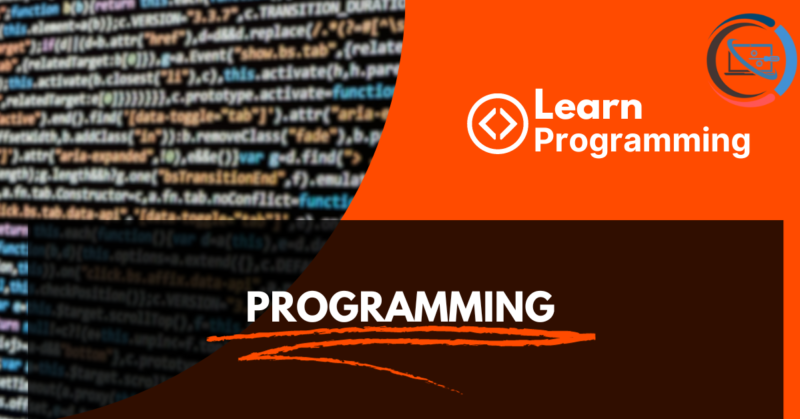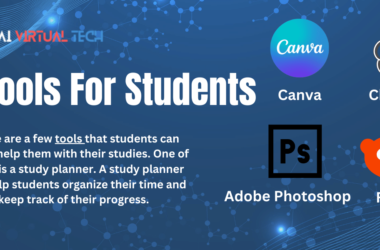How to Choose the Right Programming Language? Choosing the right programming language for your needs can seem like a daunting task. With so many options available, it’s easy to feel overwhelmed. However, in this comprehensive article, we aim to simplify this process by providing you with detailed guidance and insights. Our goal is to ensure that you can make an informed decision that aligns perfectly with your requirements, enabling you to embark on your coding journey with confidence and clarity.
Understanding the Basics of Programming Languages
- When deciding on the ideal programming language, it is crucial to have a solid grasp of the fundamentals.
- Each programming language has its strengths and weaknesses and serves different purposes. For beginners, languages such as Python offer an advantage due to their intuitive syntax. On the other hand, languages like Java are widely used in the corporate world.
- Having a clear understanding of the different programming languages available allows developers to make informed choices based on the requirements of their projects.
- It is important to consider factors such as performance, community support, and available libraries when selecting a programming language. By carefully evaluating these aspects, developers can ensure they are choosing the right language for their specific needs.
- Staying up-to-date with the latest trends and advancements in programming languages is essential.
- The technology landscape is constantly evolving, and new languages are being developed to address emerging challenges and opportunities. By staying informed and continuously learning, developers can expand their skills and remain competitive in the ever-changing field of programming.
Identifying Your Goals
Before delving into the specifics of each programming language, it is crucial to identify your goals. Are you looking to build a web application, automate tasks, delve into data science, or develop a game? Your goals will significantly influence your choice of a programming language.
Understanding your goals is the first step toward selecting the right programming language. If your objective is to build a dynamic and interactive website, languages like JavaScript or Python with web frameworks like React or Django could be suitable.
On the other hand, if you want to automate repetitive tasks, scripting languages such as Python or Ruby might be more appropriate.
If data science is your passion, languages like Python or R, along with libraries like NumPy and Pandas, can empower you to analyze and visualize data effectively.
Lastly, if game development is your focus, languages like C++ or C# with game engines like Unity or Unreal Engine can provide the tools and performance you need.
Considering the Language’s Popularity and Community Support
- The popularity and community support of a programming language can greatly influence your learning journey.
- When a language is widely popular, it usually comes with numerous benefits such as abundant resources, tutorials, and forums. These resources can be invaluable when troubleshooting problems or seeking guidance.
- Having a large community behind a programming language means that you are not alone in your learning journey. You can connect with like-minded individuals, collaborate on projects, and exchange ideas.
- This sense of community fosters a supportive and encouraging environment, which can be motivating and empowering for learners. It also opens up opportunities for networking and career advancement, as you can tap into the expertise and connections of fellow community members.
- Languages that are widely used and recognized by industry professionals can enhance your employability and open doors to a broader range of opportunities.
- By learning a popular language, you increase your chances of finding job prospects and staying up-to-date with the evolving needs of the tech industry.
Evaluating the Language’s Job Market
If you’re learning a programming language for career purposes, it’s important to consider the language’s job market. Languages like Java, Python, and JavaScript are highly sought after in the job market, offering a multitude of opportunities.
Java, as one of the most widely used programming languages, has a strong presence in enterprise applications and Android development. It is a language valued for its performance, reliability, and scalability, making it a solid choice for those seeking career growth in these areas.
Python, known for its simplicity and readability, has gained substantial popularity in recent years.
It is extensively used in various domains such as web development, data analysis, artificial intelligence, and machine learning. Its versatility and extensive libraries make it a valuable skill to have in today’s job market.
JavaScript, primarily used for front-end web development, has become an indispensable language in the tech industry.
With the rise of frameworks like React and Node.js, JavaScript has extended its reach to back-end development as well. Proficiency in JavaScript opens doors to a wide range of opportunities in web and mobile application development.
Balancing Ease of Learning with Functionality
- While you might be tempted to choose the easiest language, it’s essential to balance ease of learning with functionality.
- Python’s simplicity and readability make it a great language for beginners. Its clean syntax allows for faster and more efficient coding, reducing the time and effort required to write and debug programs.
- Python’s extensive libraries and frameworks provide a wide range of functionalities, making it suitable for various applications, from web development to data analysis and machine learning.
- While Python may be a good starting point, other languages like JavaScript or C++ might be more suitable for certain projects. It’s crucial to consider factors such as the project requirements, community support, and available resources when making a decision.
Reflecting on Future Learning Opportunities
Consider how learning a particular programming language might pave the way for future learning opportunities.
By building a strong foundation in C#, you develop a solid understanding of fundamental programming concepts.
This knowledge can then be transferred and applied to other C-based languages, such as C++ or C. This not only accelerates the learning process but also enhances your ability to tackle more complex programming challenges.
Expanding your programming language repertoire opens up a world of possibilities. Each language brings its unique features and advantages, allowing you to approach problem-solving from different angles. This flexibility not only boosts your technical skills but also broadens your perspective as a programmer.
So, when considering which programming language to learn, keep in mind the potential for future growth and the opportunities it may unlock. Choose a language that not only aligns with your current goals but also sets you up for success in the long run.

Making Your Final Decision
- After considering all these factors, it’s time to make your final decision. Remember, there’s no such thing as the ‘best’ programming language; it’s all about choosing the one that best fits your needs and goals.
- Explore the various options available, each with its strengths and weaknesses. Consider the type of projects you want to work on, the community support, and the availability of learning resources.
- By carefully evaluating these aspects, you can make an informed decision that aligns with your interests and aspirations.
- Once you’ve made your choice, don’t hesitate to start experimenting and practicing. Embrace the challenges and enjoy the journey of learning and mastering a programming language.
- It may seem overwhelming at first, but with dedication and perseverance, you’ll be amazed at the progress you can make. So, get ready to embark on an exciting adventure and unleash your coding skills!
Summary
This article provides a comprehensive guide for beginners looking to delve into the world of programming. It emphasizes that there’s no ‘best’ programming language, and the choice is largely dependent on individual needs, goals, and the kind of projects one aspires to work on. It encourages careful evaluation of different aspects including a language’s strengths, weaknesses, and community support, before making a final decision. Once a choice is made, the article encourages experimentation, practice, and embracing the learning journey.
Frequently Asked Questions (FAQS)
What is the main point the article makes about choosing a programming language?
The article stresses that there’s no ‘best’ programming language — the choice largely depends on one’s individual needs, goals, and the kind of projects one wish to work on.
What factors should be considered when choosing a programming language according to the article?
The article suggests considering a language’s unique features, advantages, and community support, as well as the type of projects you want to work on, and the availability of learning resources.
What does the article suggest doing once you’ve chosen a programming language?
The article emphasizes the importance of starting to experiment and practice with the chosen language, embracing the challenges and enjoying the learning journey.
Why does the article say it’s important to consider the potential for future growth when choosing a programming language?
The article states that considering the future growth potential of a programming language can help set you up for success and unlock new opportunities in the long run.
According to the article, how should one approach the process of learning a new programming language?
The learning process should be considered an exciting adventure. It may seem overwhelming initially, but with dedication and perseverance, significant progress can be made.
Conclusion
In conclusion, the selection of a programming language is a personal decision that should be informed by individual needs, goals, and the type of projects you aspire to work on. Consideration should also be given to each language’s unique features and advantages. Once the decision is made, the journey of learning and mastering your chosen language can be an exciting adventure, with consistent practice and dedicated perseverance leading to significant progress.













